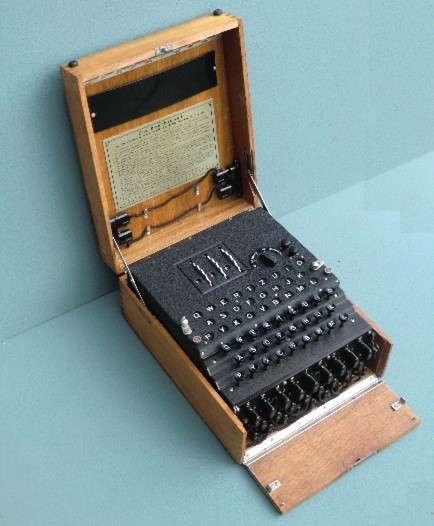The College has been gifted an iconic Enigma Coding Machine, one of only approximately 300 left in museums and private collections around the world.
Dr Phil Judkins, a Sidney alumnus (1966) and Visiting Fellow at the University of Leeds, donated the Machine to form part of a College initiative to encourage more women to study STEM subjects, in particular Mathematics. While underrepresentation of women in these subjects remains a concern across the higher education sector, Sidney has been working consistently to increase the diversity of its student body. Since 2019, the College has increased the number of offers made to women reading STEM subjects and this year, for the first time, the majority of applicants to receive an offer to read Natural Sciences were female.
The Enigma Machine was used by the German armed forces during World War Two to encode messages vital to their strategic communications whilst intercepted messages were decoded at Bletchley Park. The relationship between the College, the Enigma Machine, and Bletchley began before the war when Gordon Welchman, Fellow in Mathematics, was recruited to "Station X" and worked at Bletchley with Alan Turing to decode the German messages. This culminated in the building of what is now called the Turing-Welchman Bombe decoding machine. In proportion to its size, Sidney sent more people to Bletchley than any other Cambridge college; at least eleven of the Codebreakers were Sidney alumni.
The Machine will be used by Sidney Fellows as part of their commitment to pioneering teaching and research as well as super-curricular work and outreach engagement.
Professor Richard Penty, Master of Sidney Sussex, commented: “Few of today’s problems are solved without mathematicians, scientists and engineers, and women remain underrepresented in many of these subjects. The Enigma machine will help our students to learn about codebreaking in the past and the relevance of maths and other STEM subjects to the cracking of many of the significant technological, environmental and societal challenges of the future”.
If you have something that would make a good news or feature item, please email news@sid.cam.ac.uk
